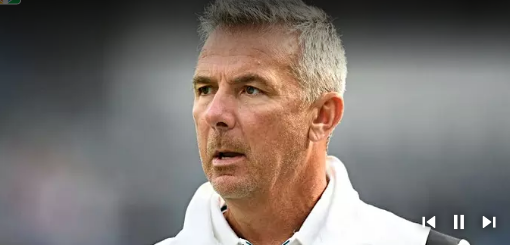Technically, Bills punter Matt Araiza only recently got the job. In practice, he was given the position when the team used the first choice in round six (180th overall) to gain his rights.
Given the recent filing of a civil case against Araiza and two men for gang rape of a 17-year-old girl, the issue is if the Bills were aware of the accusation when they picked Araiza.
The Bills haven’t said if they were aware of the accusation before putting Araiza’s name on a draught card. By focusing solely on their awareness of the case, they overlook the wider question of when they first learned of the problem. The accusation itself surfaced long before the lawsuit was filed; the criminal inquiry undoubtedly began before Araiza was prepared.
“We were recently made aware of a civil case involving Matt from October 2021,” the Bills announced Thursday night in a statement. “Due to the serious nature of the complaint, we performed a comprehensive investigation.” We will have no more comment at this time because this is an active litigation action.”
Because the civil lawsuit was just recently filed, they were only recently made aware of it. The statement that they “conducted a comprehensive review of this subject” is not time-bound. It might be referring to a time before the case was filed. Or maybe before Araiza was selected.
According to Tim Graham of TheAthletic.com, the Bills were made aware of the charges last month. That is, they were unaware of the problem when picking him, but learned about it before firing Matt Haack, the other punting candidate.
Why haven’t the Bills openly said that they didn’t know, rather than releasing that information off-the-record? Perhaps the fact is that they were aware. Or, at the very least, that they should have known.
Kerry Armstrong, Araiza’s defense lawyer, first stated in a recent TV appearance that “you better believe” Araiza told the NFL of the problem before the selection. When questioned precisely whether the Bills knew before picking Araiza, Armstrong backed off.
“When we say ‘all the information,’ I’m not sure what the Bills had at the time they picked him in the draught,” Armstrong added. “I know I’ve brought them up to speed recently on various aspects of the case, so I think they have a good knowledge of what the charges are.”
The remaining questions are straightforward at this stage. First, what did the Bills know before drafting Araiza? Two, would they have picked him if they had known what they know now? Three, what will they do now that they know what they know?
Although Araiza is entitled to certain constitutional safeguards in the criminal procedure, the Bills may proceed if they so like. While it may cause a grievance, forcing them to pay his wage, it is still preferable to hiring someone who is suspected of a horrible crime and may be guilty.
That is why the Bills must do a thorough investigation and, if they believe the claims are plausible and more likely than not true, they must fire him.
If the Bills (or the league) believe the charges are believable and more likely than not true, they should want him cut. If this had happened after Araiza was selected, he’d be on paid leave as the criminal process unfolded, rather than 13 days before making his official debut on NBC in the opening regular-season game of the year. Given that incident happened six months before he joined the NFL, the only option to keep him off the field is to fire him.
The Bills should not take this lightly. But the league and the Bills have the means to determine if it’s more likely than not that he did it. If they do, there is just one option.


















































































